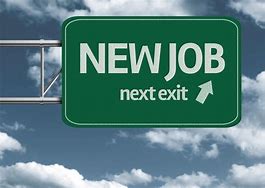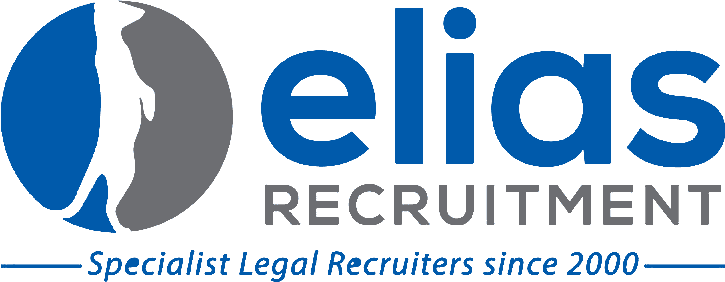Is it time to progress your career as a Lawyer? Challenge yourself with this checklist.

Is it time to progress your career as a Lawyer? Challenge yourself with this checklist. Before you take the leap and start looking for your next legal job, take a moment to ask yourself the following questions: Am I being challenged in my current role, in my current company? Am I still learning new things? Do I feel respected and appreciated? Am I developing new skills that will enhance my value? Can I see a future career path? Do I get up each Monday excited about going to work or not? Examining the reality of your current role and objectively determining whether it’s the role itself that needs to change or simply the employer can often be the most important first step. Only you know when it’s time to move on. But chances are you’ve at least thought about what the next move might be. There are clear warning signs that it might be time to move on. 1. Staying Doesn’t Make Financial Sense It probably seems risky, but changing jobs can often mean an increase in income or other non-financial benefits. New employers may offer an incentive to move across, and some firms are now offering “70 cents in the dollar on billings” and cross-referral/client introduction fees (often 10% of collected fees). Consider the other benefits you may currently be missing out on: better hours, working closer to home, or flexibility like working from home one day a week. You may find you even have time to take that holiday that never seems to come around. Moreover, staying in a role that doesn’t meet your financial expectations can lead to dissatisfaction and burnout. Regularly assess your market value by networking with recruiters and peers in your field. The recent APLMA Salary survey ( Free for ALPMA member or purchase the full survey here) can provide insights into current salary and employment trends in the Legal Industry and help you benchmark your compensation. Remember, it’s not just about the base salary; look at the total compensation package, including bonuses, benefits, and work-life balance. 2. You’re Risking Guilt by Association No matter how many hours you put in, if you’re not working for the right people, that is energy wasted. Some firms are known for excellence in one area and not others. Ask yourself: how positive is our firm’s reputation in my practice area? Who are we being compared to? Are we being held back or even missing out on work because of the way the firm is perceived? Maybe moving on is a better bet for your reputation. Being associated with a firm that has a tarnished reputation can have long-term career implications. Clients and peers often judge you by the company you keep. If your firm is embroiled in scandals or known for unethical practices, it might be time to distance yourself. Look for firms with a strong ethical foundation and a positive market reputation. A good reputation not only attracts better clients but also opens doors to prestigious career opportunities. 3. Politics Is a Tricky Game Managing demanding clients is one thing. Managing internal conflict is another level of stress altogether. Sometimes firm management just won’t be on your side. Perhaps they are excluding you from managing bigger clients because of some perceived conflict. Did you back the wrong person at the last partner’s meeting? Politicking is part and parcel of law firm life, but if it is taking up too much headspace, it may be time to outgrow the petty game playing. Internal politics can be toxic and detrimental to your mental health and career progression. If you find yourself constantly navigating office politics rather than focusing on your professional growth, it might be a sign to move on. Seek environments where meritocracy prevails and where you are recognized for your contributions and not your alliances. Transparent and supportive leadership can significantly enhance job satisfaction and career development. 4. Your Firm Is Choked by Bureaucracy Too much paperwork and too many meetings might eat into your practice. You would be better off developing business and nurturing client relationships rather than attending endless irrelevant meetings that go nowhere. Overcomplicated workplaces can be very difficult to change. So ask yourself, do you have time to wait around while these knots are being untangled? Or do you have better things to be doing? Bureaucracy can stifle creativity and efficiency. If you spend more time navigating internal processes than serving clients or developing your skills, it might be time to consider a change. Look for firms that value streamlined processes and efficiency. Modern legal practices leverage technology to minimize administrative burdens, allowing lawyers to focus on high-value tasks. Adopting a proactive approach to seeking out such environments can lead to a more fulfilling and productive career. 5. There’s Been a Change in Direction When you started your current role it may have been a perfect match. But things change. If your firm decides to take things in a new direction, your areas of focus may simply not fit anymore. Perhaps they have brought in an outsider above you or merged with a firm with an incompatible culture. Adapting to organizational changes can be challenging, especially if the new direction doesn’t align with your career goals. When a firm shifts its strategic focus, it can create misalignment with your professional objectives. This misalignment can hinder your growth and job satisfaction. It’s essential to stay attuned to industry trends and be prepared to pivot when necessary. Evaluate whether the new direction aligns with your long-term goals and values. If not, it might be time to explore other opportunities that better suit your career aspirations. 6. There’s a Values Mismatch This is tough because values underpin every decision, big and small. Even if your situation looks fantastic on paper, a fundamental mismatch in values or personalities will wear you down over time. Values don’t have to be spelled out in a strategic document. You’ll know what your firm’s priorities are, and
What happened in the Legal industry in 2023/24 FY and where to from here?

What happened in the Legal industry in 2023/24 FY and where to from here? First and foremost, we want to express our heartfelt thanks from everyone here at Elias Recruitment. We truly value your support and trust throughout the past financial year. This has been a significant year for us as our team has excelled, and we are now delighted to assist our clients with all their hiring requirements. Eva Wilson is leading our Business Support team and hiring exceptional talent including Paralegals, Legal secretaries, Legal Admin and Service Managers. Karen Horovitz is hiring for our clients across all Operations, IT, Finance, Marketing and Sales talent. More insights from 23/24 FY and prediction to the upcoming one: Market Conditions in the Legal Industry Despite downturns across numerous industries including IT, the Legal sector remained robust and demand for lawyers was strong. While not at the dizzying heights of the previous year, there was a constant need for good quality lawyers (especially at 3-6 years PQE) across most practice sizes and areas. While many firms focussed on maintaining headcount rather than expanding, a number of smaller firms catering to the B2C market (e.g. family, crime, wills) grew rapidly as a result of innovative online marketing campaigns. Demand was particularly strong for general insurance, workers’ compensation and family law- with an increase in post-pandemic relationship breakdowns. The desire for lawyers to work overseas has risen again with USA, UK, Asia and Middle East viewed as key destinations. The impending Free Trade arrangements with the UK allowing mutual recognition between jurisdictions will be worth watching. Salary Trends Elias Recruitment proudly supported the 2024 APLMA Australian Legal Industry HR Issues & Salary Survey. The survey indicates a substantial rise in salaries within the legal industry, with an average increase of 7.0% for law firm employees (national average of 4.2%). There was upward pressure on salaries from firms trying to outbid each other for candidates with multiple offers or current employers counter offering. Overall. salaries have tended to normalise this year. Graduate lawyers’ salaries surged by 11.8%, bringing the average to $76,000 and anecdotally, we understand some first years have been offered up to $110,000 by top tiers. Recruitment Efforts Recruitment will consume the largest proportion of HR budgets, with 29% of firms prioritising talent acquisition. Most vacancies are for replacing existing lawyers with a continuation of exodus to inhouse legal roles. Firms offering flexibility fare better in a still competitive market. While many early career lawyers enjoy the office environment, learning and social opportunities, more experienced lawyers (especially those who may have family responsibilities) baulk at a 5 day in the office scenario. Ad response is still poor with the job boards delivering fewer quality candidates. We are relying on headhunting, networking and word of mouth referrals from 24 years in the market. Many lawyers are too busy to actively job hunt and wait for roles to be presented to them. Consequently, Elias Recruitment has developed a Legal Talent Pool where clients can see all the top candidates we currently represent and approach them seamlessly.
Elias Legal Jobs Index Report Q3 2022

The legal jobs market is continuing to be buoyant. Demand is outstripping supply in a candidate short market. The national unemployment rate is dropping below 4% and in legal is less than that. Candidates have the bargaining positions, and we are seeing increased demand for flexible work practices. The “work from home” genie cannot be put back in the bottle even as the world adjusts to fewer covid restrictions. Salaries are increasing in line with demand. Anecdotally we have seen rises of up to 30% for areas in demand. We have also noticed a rise in counter-offers as employers scramble to retain staff by matching offers. Some trends we have observed are: Biggest jump in roles was family, Increasing by up to 75% Double the number of personal Injury roles A 66% decline in insolvency roles The main levels of hiring was at the director/partner level reporting an increase of 66% whilst other roles at a lower seniority such as Junior Associates and managers dropped by 23%. It will be interesting to see if hiring amongst the graduate ranks continues to increase heading into Q4 as we are moving further away from the troublesome times of COVID 19 and after reporting a Q3 increase of 20%. JOBS INDEX Q3 2022 Area Banking & Finance Q2 FY22 55 Q3 FY22 43 % change -21% Corporate / M&A 66 59 -10% Employment 34 35 3% Family 8 14 75% In House 46 39 -15% Insurance / Reinsurance 43 45 4.6% Litigation / Dispute Resolution 39 49 25% Real Estate 52 39 -25% Regulatory 20 20 0% Personal Injury 16 24 50% Insolvency 9 3 -66% Tax 9 9 0% Technology 27 27 0% TOTAL 424 406 -4% Seniority Q2 FY22 Q3 FY22 % change Department / Div Head 5 4 -20% Director / Partner 3 5 66% Graduate / Entry 10 12 20% Junior Associate / Manager 13 10 -23% Mid Associate / Manager 270 276 2% Snr Associate / Manager 185 163 -11% Methodology: the Elias Legal Jobs Index is based from sample data extracted from Sydney and Melbourne law firm advertisements.
What I wish I’d known as a new lawyer | Advice from a recruiter

What makes the difference between a fresh graduate and a veteran lawyer often comes down to details – writing an email so a client clearly understands their legal options, or contributing effectively to a business meeting to win new work or consolidate an existing relationship. On 18 August 2017, The College of Law hosted a one-day event, the New Lawyers Summit, featuring advice from senior lawyers, recruiters, digital networkers and barristers to help law graduates acquire the skills they need to excel professionally. Insights spoke to recruiter Jason Elias, who was part of the New Lawyers Summit, on his advice for new lawyers hoping to impress in their first graduate role. “As recruiters, we hear, see and are sometimes purely surprised by some of the easily avoided but common mistakes we see in the recruitment process,” said Elias. Including a photo ranks high on his list of job-hunting faux pas. “There is no reason to put a photo in a legal CV, even if you look like Amal Clooney – or George Clooney. It’s irrelevant. Unlike actors or models, looks are irrelevant when it comes to being a good lawyer.” “Be brief in your CV,” advised Elias. “Anything over four pages is overkill. Make sure you focus on the most recent and relevant roles. Do not include any matters that could be discriminatory, such as references to your age, marital status, race or religion. “Don’t try to be fancy with your CV, with illustrations or boxes or any other kind of novelty. Just be professional. Remember, the CV is there to get you the interview. Once you’re in the interview, let your personality shine a bit more.” For law students looking to impress recruiters and law firm HR, Elias advised finding some form of legal work while studying law. “Get a job, even if it’s in the mailroom,” said Elias. “There are so many stories of managing partners who started in the mailroom. Get an associateship with a judge, find work as a paralegal – anything relevant to your chosen career.” Elias also noted that marks remain important, so a concerted effort to do well – and consistently – in the study of law will distinguish applicants at the graduate recruitment stage. Applying the same sense of industry and commitment to preparing for an interview as one might for a distinction or high distinction is essential – and one of the most overlooked areas for graduate applicants. “Preparation is really important. I’ve never understood why it’s overlooked. When you’re going for a job, your academic transcript might have three pages of marks, which a recruiter or an HR manager might glance over for twenty seconds. For each of those marks, you might have spent dozens of hours to make sure it was distinction, not a credit. Yet I still hear HR people telling me that a candidate didn’t know their firm specialised in a certain area. “To prepare well for an interview, read the firm’s website,” urged Elias. “Read anything that is written by the firm and its lawyers. Know the legal press. Know the LinkedIn profiles of all the partners. It shows you know the firm and want the job.” In recent years, automation and outsourcing have featured frequently in legal news, sparking some concern that it may disrupt entry level and paralegal work. In Elias’s view, these concerns are largely unfounded. “I’m a bit skeptical about how much automation will really effect the legal profession. There’s no substitute for quality control, and only real people can ensure quality work. Automation may make our work more efficient but it won’t replace all work. New lawyers should focus on doing what machines can never do – understanding the commercial context of a legal issue, and the subtleties of human nature. Much of the time advice is not just about technical black letter law but the commercial context and underlying human motivations around a deal.” Above all, Elias advises perseverance. “Getting turned down from a job interview is not the best feeling in the world,” Elias said. “Some roles, especially in-house, can have up to 100 candidates. Some employers will share tips on how you can improve. Take these tips into consideration and learn from the job application experience. Remember, recruiters deal with thousands of lawyers each year. Nobody is intentionally out of work for long.” This article was first published on 12 July 2017 in the College of Law.
The Great Hesitation

“The Great Resignation” has received a lot of press. There is no doubt that this phenomenon has hit the US, in particular. According to PricewaterhouseCoopers US Pulse survey in August 2021, 65% of employees said they are looking for a new job and 88% of executives said their company is experiencing higher turnover than normal. While Australia’s economy is usually in lockstep with America’s – has the Great Resignation hit here and, in particular, has it hit the legal services market? Well according to the Australian Bureau of Statistics – up until February, Australia had the lowest annual job mobility rate on record. The most recent stats from October 2021, show professional services (including legal) dropped by 2.9 % that month. So it is clear that the Great Resignation has not hit us yet. We are still finding lawyers are reluctant to move jobs – so it may be the Great “Hesitation”. Over the last few weeks there has been more of a trickle but this may just be related to the Christmas Season. There are probably a number of factors including lag. Trends seen in the US may take a few months to manifest here. Also, the drivers for job change such as commutes and managers are less of an issue when working remotely or only part time in the office. Some research suggests up to 60% could be looking to change jobs before the end of April 2022. It is likely that once lawyers are back at their desks around Australia Day we may see an uptick in movement. The fact that candidates are getting decent pay rises to move, as well as some firms trying to revert back to pre-covid policies like full-time in the office that will lose out against more flexible workplaces, are just some reasons. In order to ascertain legal specific trends we ran a quick poll of over 200 Australian Lawyers asking: Will you be a part of the ‘Great Resignation’? 62% are planning to resign 38% are not planning to resign Of the 62% who are planning to resign: 32% will do so for more money or a promotion 12% will do so to seek work overseas 18% will do so for other reasons Of those planning to resign: 34% are currently employed in-house 26% are currently employed in a small law firm 18% are currently employed in a medium law firm 15% are currently employed in a large law firm 7% are currently employed in the public sector Of those who are happy in their current roles: 36% are currently employed in a small law firm 22% are currently employed in-house 18% are currently employed in a medium law firm 16% are currently employed in a large law firm 8% are currently employed in the public sector We are keeping close to those that are looking for new opportunities and finding the right match in terms of culture, values, location, remuneration and flexibility. Jason Elias , CEO Elias Recruitment
REFLECTIONS ON 2021

There is an old Chinese saying “Better to be a dog in times of tranquility than a human in times of chaos”. I am not sure if I subscribe to this as 2021 was indeed a year of chaos but at the same time, there were many positives. We started Elias Recruitment in May 2000 and have seen many economic cycles, up and down. Often when business confidence is up the transactional lawyers are going gangbusters and then when recessions hit the family lawyers, litigators and insolvency folks get busy. However in 2021 everyone was busy. Lawyers seemed to have more work than pre-covid despite the best efforts of a global pandemic and often kneejerk reactions from politicians sending us into extended lockdowns. The recruitment market has been the busiest we have seen it. Despite having expanded our team to 10, everyone is still flat chat. I attribute this in part to the lack of supply of decent experienced lawyers open to changing jobs and unprecedented demand for lawyers across firms, inhouse and government. At the same time, the quality and quantity of ad response from job boards like SEEK have dwindled and often risk-averse lawyers have been hesitant to change jobs in an unpredictable and volatile market. The Great Resignation often touted overseas is yet to be replicated here. I predict there may be more movement towards March 2022 depending on how the new Omicron strain plays out. In the meantime we have had great success with direct approaches to lawyers as well as using technology to map every lawyer in the state. Many candidates we work with are exclusively represented by Elias Recruitment. This means that we can partner effectively with them and make sure our clients have first access to the cream of the crop that cannot be found elsewhere. As we hurtle towards the end of the year, I wanted to thank all our clients and colleagues who have supported us this last year and beyond. We wish you and your colleagues all the best for the holiday season and a safe, rewarding and successful 2022. Jason Elias CEO Elias Recruitment
Elias Legal Jobs Index Q1 FY22

I am writing this just coming out of 107 days of lockdown in Sydney so how the potential new outbreak affects business confidence is an unknown. Most lawyers I am speaking to are still very bullish and aggressively hiring across most practice areas and levels. We are starting to find face to face interviews are coming back. Most firms are still working partly remote and partly on-site. There is a particularly positive response from junior lawyers who have missed out on face to face mentoring and learning from being in and around other professionals in an office setting. Some lawyers are actually meeting colleagues for the first time, as they have worked with the firm for months remotely. It is clear that things will not return to the pre-covid normal. The firms that insist on full-time back in the office are at risk of losing talent to competitors offering greater flexibility. Salaries are also on the rise as demand outstrips supply of experienced legal talent. The COVID outbreak has indeed changed us on so many levels and it has pushed us to accept a completely new version of our day to day lives. The last two years have profoundly influenced the way we work as well with more companies adopting the hybrid approach, allowing employees to work part-time from home. With everyone coming back to the office, another question rises: Mandatory vaccination or not? This will be an interesting topic to keep our eyes on. According to the Jobs Index from last quarter, other than interviews being postponed or moved to zoom the following trends have been observed: Biggest jump in roles are corporate and M&A Double the number of tax roles 50% increase in litigation and dispute resolution roles 27%- 30% increase in insurance/reinsurance roles and real estate 18% increase in banking and finance roles there was a slight decline in technology, employment and personal injury roles family roles decreased by 62%. The main levels of hiring were at the director/partner level with a 125% increase and with a 66% increase in graduate/entry roles. If you have questions about the market or salaries please contact Jason Elias on [email protected] or 02 9555 5711. Jason Elias is the Founder and CEO of Elias Recruitment, a boutique legal recruitment consultancy that specialises in finding lawyers for law firms, NFPs, and corporate in-house teams. JOBS INDEX Q1 FY22 Area Banking & Finance Q4 FY21 56 Q1 FY22 66 % change 18% Corporate / M&A 65 93 43% Employment 41 37 -9% Family 8 3 -62% Insurance / Reinsurance 33 43 30% Litigation / Dispute Resolution 50 75 50% Real Estate 65 83 27% Regulatory 22 16 -27% Personal Injury 53 47 -11% Insolvency 5 4 -20% Tax 6 13 116% Technology 37 35 -5% TOTAL 491 515 5% Seniority Q4 FY21 Q1 FY22 % change Department / Div Head 7 4 -43% Director / Partner 4 9 125% Graduate / Entry 6 10 66% Junior Associate / Manager 74 61 -17% Mid Associate / Manager 298 373 25% Snr Associate / Manager 220 225 2% Methodology: the Elias Legal Jobs Index is based from sample data extracted from Sydney and Melbourne law firm advertisements.
Where are all the lawyers?

Recently I marked 22 years in the legal recruitment industry and I must say that despite any prediction I had when the pandemic hit the market has gone from strength to strength in terms of demand of high-quality lawyers. I have never seen such a candidate short market previously. So where have all the candidates gone? I have a fear of theory that the following key factors are taking place in terms of the lack of supply of lawyers: Reluctance to move jobs. Lawyers can often be risk averse and it is not surprising that in times of volatility they are reluctant to be the last in for risk of being the first out with a new job. The closed borders has meant that there has been a reduction in the supply of overseas talent including from New Zealand and UK. This has meant that with the retirement and people moving out of the profession there is a fight amongst existing employers over a finite pool of candidates. There are less compelling reasons to move. Often you’ll find that lawyers seek to move jobs because of uncomfortable work environments or conflicts with managers. Given the extended lockdowns in states like New South Wales and Victoria, these potentially conflict scenarios have less opportunity to manifest with people working remotely. The difficult bosses are sometimes a lot easier to deal with remotely with less contact. Some lawyers will leave a job because of a long commute. However, with the work from home options currently under lockdown and potentially in the future, an occasional commute becomes less of an incentive to move jobs. Employers are also understanding the needs of their employees and doing more to keep them happy and are decreasing churn in the market. Jason Elias CEO
Uncertain times- don’t worry, we are in your corner

Sometimes you need to talk to someone about your career. It is dangerous to speak to colleagues at work so an objective outsider with industry experience is a good option. Here is where an experienced consultant can help. Elias Recruitment has over 20 years helping legal professionals in private practice and in-house legal roles. Our award winning team, are a safe pair of hands to advise on everything from salaries and your current role or any future move. We can offer expert advice and insight into which opportunities will best suit your career ambitions. We have consultants in Sydney, Melbourne, Brisbane and Perth to assist you. So if you want a friendly, objective voice on your team, book a free career chat with one of our team at [email protected].
How to position yourself for approaches – Headhunting…

A few touches to your mobile phone and your groceries, an Uber or a pizza come to you. So why not a job? Many of the best jobs are never advertised so how do you hear about them? Good employers know that the best lawyers are so busy running their practices that they don’t have time to trawl through job ads. They also like keeping strategic hires out of the public eye so the marketplace doesn’t catch on to what they’re doing and where they’re headed. That’s why, when it comes to bringing in the big guns, they’ll use third party headhunters to track down, sound out and snare the best talent for themselves. Headhunters don’t use a scattergun approach. Once they’ve been briefed, they usually put feelers out via networks, compile a longlist, then research those candidates to see who’s likely to be a good fit. By the time they approach someone, they pretty much know who they are, what they do and what their reputation is like. So, if you want to be in their sights, there are six things you should be doing. Social networks – make LinkedIn work for you Review your LinkedIn profile, make sure it clearly articulates your skills, experience and area of practice. Highlight projects you’ve worked on and the value you contributed (without of course breaching client confidentiality). Headhunters want to have a good understanding that you’ve worked on similar kinds of matters to those their client has briefed them about. Don’t be shy about blowing your own horn. See Getting your social media profiles ready (Above). Be known as an industry expert You’ll never be headhunted if no one has ever heard of you. So, if you’re not already building a profile for yourself, start now. Put yourself forward to present on your areas of expertise wherever possible, especially for industry events or CPD. As an example, check out Bulletpoints for content. Write about important issues and hot topics affecting your work and share these – not just via your firm’s newsletters but directly with contacts by publishing LinkedIn and other social media channels. To ramp things up, join LinkedIn groups of like-minded people such as Australian Legal Community and start contributing to the conversations. Consider publishing in industry journals – or better still, form relationships with journalists to expand opportunities of being quoted in business or mainstream press as an expert in your field. Releasing subtle signals If you are considering making a move, it’s a good idea to start putting your feelers out there. You can even change your LinkedIn settings to discreetly show that you are open to new opportunities (not viewable to your employer). Also check that your Inmail settings allow you to notify users that you are open to ‘career opportunities’. Make contacting you easy, not a mystery While gatekeeping receptionists can be great at shielding you from telemarketing calls, they can act as a block for headhunters who want to sound you out. So make yourself easy to contact by including your mobile number and personal email address on your LinkedIn profile. If a headhunter struggles to reach you, they may bypass you and run the opportunity by the next person on their list. And, if a headhunter calls and you can’t speak freely, set a time to chat when you’re out of the office. This also gives you a chance to check out their LinkedIn profile to see whether you want to deal with them. Remain professional, don’t breach etiquette Don’t tell anyone in your firm – and that means anyone – about your plans to move, even once you’ve been approached. If the headhunting process isn’t handled discreetly, you’re likely to jeopardise your current position as well as any new opportunities. If a headhunter alerts you to an opportunity never approach the employer directly. Not only will your overtures be met with blank stares, you’ll be seen as disloyal. They’re using a headhunter for a reason and it may be a confidential search. But don’t be afraid If you are approached by a headhunter, you can benefit from their expertise. It never hurts to know the state of the market and have a trusted source of intelligence, especially around salary review time. Besides, even if the specific opportunity they wanted to talk about isn’t right for you at the time, something may hit their desk in the near future. Finally, if you’ve noticed that they’ve looked at your LinkedIn profile, drop them a line to find out why. Headhunting can be a slow dance of missed calls, profile views and unnoticed messages sitting in your personal email account. So, if you’re open to a move, make sure you stay alert and responsive to any headhunter approach. For additional career advice contact Jason Elias on [email protected]

